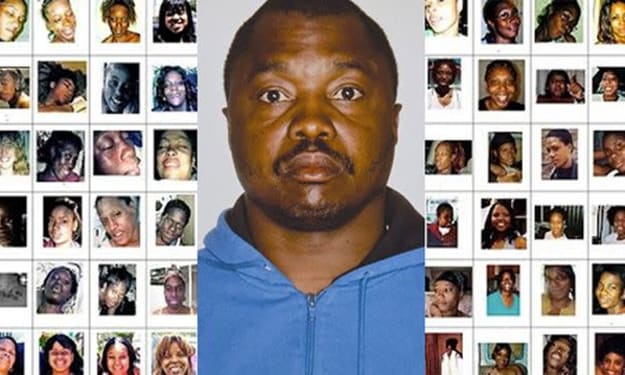"Blade Runner's Tragic Fall"
Oscar Pistorius, the celebrated South African Paralympic athlete, faced a high-profile trial in 2013 after being convicted of killing his girlfriend, Reeva Steenkamp.

In 2013, the world was shocked by the tragic events surrounding the high-profile trial of Oscar Pistorius, the South African Paralympic athlete and global inspiration. His rise to fame was unparalleled, but his fall from grace would forever alter his legacy. The trial captivated global attention and left many questioning the true nature of the man known as "Blade Runner."
Oscar Pistorius was born on November 22, 1986, in Sandton, Johannesburg, with a congenital condition known as fibular hemimelia. As a result, he had both of his legs amputated below the knees as an infant. Despite his disability, Pistorius defied all odds and developed an intense passion for sports. He excelled in various disciplines, including rugby and water polo, but it was his prowess on the athletics track that would eventually catapult him to international stardom.
The turning point in Pistorius's life came in 2004 when he switched to sprinting. His carbon-fiber prosthetic blades allowed him to compete on an equal footing with able-bodied athletes, and he quickly earned the nickname "Blade Runner" for his lightning-fast speeds. Pistorius shattered records and barriers, becoming the first double amputee to participate in both the Paralympic and Olympic Games, securing a place in history and inspiring countless individuals worldwide.
While Oscar Pistorius's achievements made him a symbol of perseverance and determination, his personal life took a dark turn in the early hours of February 14, 2013. On that fateful Valentine's Day, Pistorius shot and killed his girlfriend, Reeva Steenkamp, at his home in Pretoria. He claimed he mistook her for an intruder, firing his weapon through a locked bathroom door in a moment of panic.
The tragic incident sparked a media frenzy, and the subsequent trial gripped the world's attention. Prosecutors painted a different picture of Pistorius, alleging that he and Steenkamp had a tumultuous relationship marked by arguments and violent outbursts. Witnesses testified to hearing loud arguments coming from the couple's home on the night of the shooting.
Throughout the trial, Pistorius maintained his innocence, and his defense team argued that he genuinely believed an intruder was in the bathroom. They portrayed him as a vulnerable man who feared for his life due to the high crime rate in South Africa. However, the prosecution sought to prove that Pistorius intentionally killed Steenkamp during a heated altercation.
In September 2014, Judge Thokozile Masipa delivered her verdict, finding Oscar Pistorius not guilty of murder but guilty of culpable homicide, equivalent to manslaughter in many jurisdictions. The verdict sparked controversy and widespread debate over the South African legal system's handling of high-profile cases and violence against women.
The sentencing phase of the trial saw further public scrutiny. In October 2014, Pistorius received a five-year prison sentence for culpable homicide. However, this sentence drew criticism from many who believed it was too lenient for taking a life. In November 2015, after serving only one year in prison, Pistorius was released on house arrest to serve the remainder of his sentence.
The prosecution appealed the verdict, seeking a murder conviction, and in December 2015, the South African Supreme Court of Appeal overturned the original verdict and convicted Pistorius of murder. The case was then sent back to the High Court for a new sentencing hearing. In July 2016, Pistorius was sentenced to six years in prison for the murder conviction, again drawing mixed reactions from the public and the Steenkamp family, who felt the sentence was insufficient for taking their daughter's life.
Subsequent appeals by both the prosecution and defense further extended the legal battle. In November 2017, the Supreme Court of Appeal increased Pistorius's sentence to 13 years and five months, recognizing the seriousness of the crime and the need for a more severe punishment.
Oscar Pistorius's story is one of exceptional triumph and devastating tragedy. His journey from a young boy with physical challenges to a celebrated Paralympic athlete brought hope to millions, but his actions on that fateful night forever overshadowed his achievements. The trial highlighted the complexities of fame, violence, and justice, leaving an enduring impact on the global conversation surrounding these issues. Oscar Pistorius's legacy will forever be intertwined with both the heights of human achievement and the depths of human frailty.
About the Creator
Enjoyed the story? Support the Creator.
Subscribe for free to receive all their stories in your feed. You could also pledge your support or give them a one-off tip, letting them know you appreciate their work.





Comments
There are no comments for this story
Be the first to respond and start the conversation.